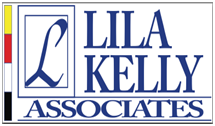Diversity in the Job Interview Process—The First Impression
“You never get a second chance to make a first impression.” In my last 15 years of teaching interviewing techniques, I’ve used this phrase often with people in job transition. After conducting research on diversity in the job interview process, where I interviewed over 70 people of diverse backgrounds about their job interviewing experiences with twin city organizations, I can say that this phrase goes for interviewers as well. Following are three cases I would like to share with you.
“I don’t put on my resume, ‘I’m not as white as you might want me to be,’ or ‘Maybe this will really help your numbers out.’ My last name isn’t Jackson, and my voice on the phone doesn’t give it away. So they have no clue until I show up,” said an African American man who is a professional in the financial industry. He has had some interesting reactions when he’s shown up for job interviews. When I asked him to describe a reaction of surprise that he has experienced from interviewers, his eyes opened a little more, he looked beyond me a little, then back at me and said, “Oh, you’re David?” He added, “Then when you get the group interview, and they’re coming in one at a time, I would get to watch each one be surprised.”
An HR Manager, who is American Indian, took her husband’s Irish last name when they got married. “I am full-blooded and my coloring is very distinctly Indian,” she said. When she has gone on interviews, interviewers have often been surprised that she looks far from being Irish. Sometimes they will repeat her last name and say, “….that’s an interesting name.” She has then explained how she got the name, but that she is not Irish. She said, “Then they either get embarrassed for bringing it up or they start laughing, and I think it is because they’re not sure how to react to me.”
An Israeli man in restaurant management said that on the phone, once they got beyond the greeting, as soon as the receptionist heard his accent, her tone of voice turned rude.
These are only a few of the examples I have heard from diverse applicants. When I’ve asked people how they know that the reason they are treated a certain way is because of their color, one response I got was, “You don’t always know, maybe the person is just having a bad day. But when I see them treating other people who come in after me more respectfully, then I know.”
Could you or someone on your interviewing team be reacting in a similar way when an applicant doesn’t meet their expectations? We all make assumptions about other people. That is part of being human. However, assumptions based on stereotypes can be harmful to others, to ourselves, and to our organizations. We need to realize that we make assumptions all the time, that it is only an assumption until it is proven to be true or false, and we need to acquire the knowledge and skills to know the difference.
The first impression sets the tone for the interview, and the interview sets the tone for the applicant’s employment with your organization. If an applicant forms a negative impression of your organization during the interview, then carries it with them into the job, and this impression continues to be confirmed while on the job, this can affect employee productivity and retention. Also, the impression an applicant brings back and shares with their community can affect your organization’s future recruiting efforts.
Remember, you never get a second chance to make a first impression.
Copyright ©2007, 2014 Lila Kelly Associates. Your Strategic Partner in Diversity Integration – Since 1992. Not to be reprinted without written permission from Lila Kelly. This article includes excerpts from books and online trainings on diversity in recruiting, interviewing & hiring by Lila Kelly at DiversityIntegration.com. To stay up to date on all the latest from Lila Kelly Associates and Diversity Integration, subscribe to our monthly newsletter.

